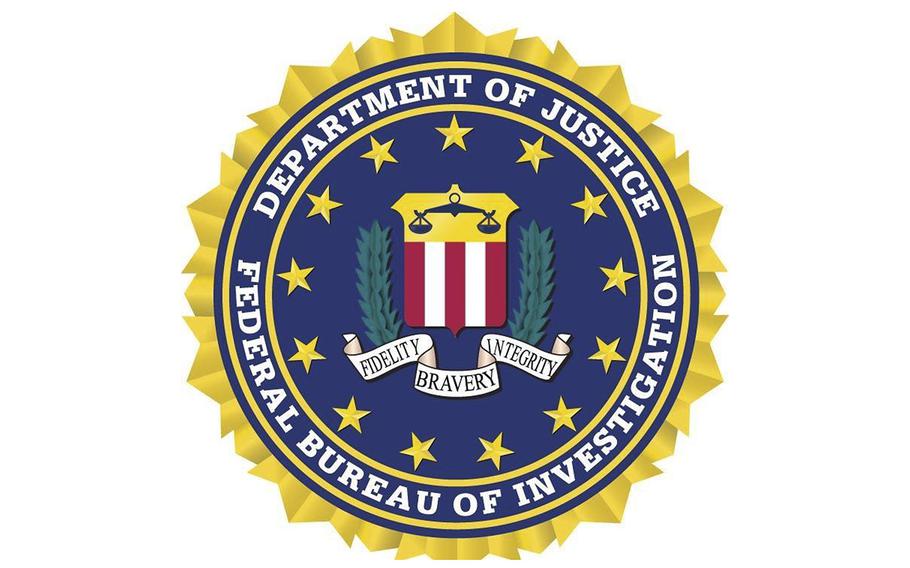
(FBI/Facebook)
An FBI counterintelligence official testified Wednesday he was rattled when he learned he might be in the crosshairs of special counsel John Durham's team as it investigated the bureau's 2016 probe of links between Donald Trump's presidential campaign and Russia.
Brian Auten, the FBI official who supervised intelligence analysts in the 2016 Crossfire Hurricane investigation, said it was "scary" when he was told he was a "subject," rather than a mere "witness," in the case - which could mean potential exposure to criminal charges.
Auten testified in federal court in Alexandria, Va., for a second day in the trial of Igor Danchenko. A private researcher based in Washington, Danchenko was hired by a former British spy, Christopher Steele, to gather information that eventually wound up in the "Steele dossier" of claims about Trump's ties to Russia. Danchenko was indicted on charges of lying to the FBI during interviews in 2017 about the sources behind his research - which Durham contends affected the FBI's work in the Russia probe.
According to his testimony, Auten was a key figure in the 2016 investigation. He supervised FBI intelligence analysts on the case and met with Steele alongside other FBI officials, who offered the former spy up to $1 million for information that could corroborate his claims of a conspiracy between Trump and Russia in court. Steele could not do so, Auten testified.
Auten also met with Danchenko over three days in January 2017 to judge his research and then helped to recruit Danchenko to be a paid confidential informant for the FBI, hoping to ferret out his sources and information, he testified.
Under questioning from Danchenko defense attorney Danny Onorato, Auten said Durham was the first investigator to consider him a "subject" of a probe. The FBI counterintelligence supervisor said he previously had given voluntary accounts of the FBI's 2016 Russia investigation to the Justice Department inspector general and the Senate Judiciary Committee and had prepared and signed a 100-page affidavit on the matter for the FBI's internal affairs division.
Durham was appointed by then-Attorney General William P. Barr during the Trump administration to dig into the origins of the FBI's 2016 probe. Auten said in response to questions from Danchenko's defense team that he retained two attorneys and met with Durham's office in preparation for his trial testimony.
On Durham's first day of questioning Auten, the FBI official repeatedly confirmed he was involved in reviewing warrant applications seeking secret surveillance of a former Trump campaign adviser, Carter Page. The applications were based in part on an uncorroborated claim from Steele's dossier that Trump was in "a well-developed conspiracy of cooperation" with Russia. In a 2019 report, the Justice Department inspector general criticized some of Auten's actions in the Page matter, though the inspector general found no political bias in the FBI's decision-making.
On Wednesday, Auten testified that Danchenko never turned over emails to the FBI that might have shaped the bureau's work. The emails show Danchenko reaching out, seemingly without any success or response, to Sergei Millian, the former president of the Russian American Chamber of Commerce. Prosecutors say Danchenko fabricated Millian as a source for some of the dossier claims, even though the two had never spoken.
"All of those emails would be very helpful to understand the full extent of the communication between the parties," Auten said, adding that they could have helped the FBI "evaluate the course of the information." Auten also said Danchenko should have turned over email communications with Charles Dolan Jr. to the FBI in 2017. Prosecutors say Danchenko "concealed" Dolan, a longtime Washington public relations executive aligned with Democrats, as a source and never mentioned him to the FBI agents asking where he got his information.
For Durham to win a conviction, the jury must find not only that Danchenko willfully deceived the FBI in 2017 but that the lies had a material effect on the agency's investigation. Auten said the FBI's investigative actions "possibly" would have been different had agents seen the emails with Danchenko's outreach to Millian in 2017, to which Durham shot back, "Possibly?" Auten responded that FBI officials might have taken different investigative steps.
Danchenko's team has argued that he did not lie about Dolan to the FBI, because he was asked by agents whether he had "talked" to Dolan about material in the Steele dossier. The two had not spoken, only communicated via email, according to Danchenko's defense. As for Millian, Danchenko's team argued that he gave the FBI his best understanding of the facts at the time: An anonymous person had reached out in a phone call or via a phone chatting app with dirt on Trump and Russia, and Danchenko assumed it was Millian.
"He never said with 100 percent certainty . . . that the anonymous caller was Sergei Millian?" Onorato asked Auten about the FBI's three days of interviews with Danchenko in January 2017. "That's correct," Auten said.
"We asked questions, and he answered those questions," Auten said.